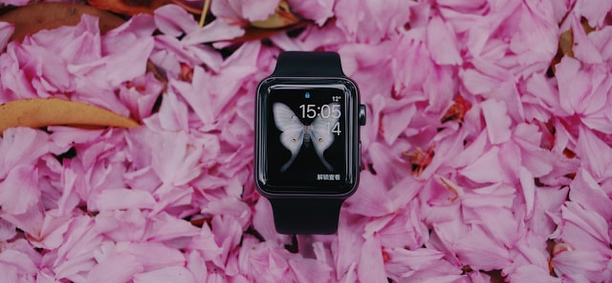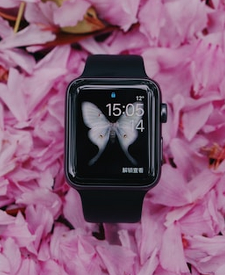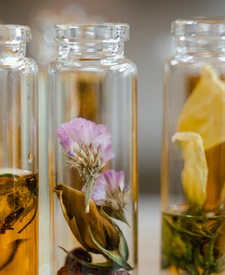A Perfumed Tale: How Your Perfume Reveals Insights into Your Lifestyle
Ever wafted past someone in the street and caught a hint of their perfume, which instantly transported you to a memory or gave you a sense of their persona? Perfumes have long been more than just fragrances; they're gateways to memories, moods, and even glimpses into a wearer's lifestyle.
For centuries, they've been the invisible yet captivating accessory people wear, expressing aspects of their personalities, aspirations, and, in many ways, their way of life.
Historical Perspective: Perfumes as Status Symbols
Going back in history, perfumes were the preserve of the elite. Ancient civilizations like the Egyptians had their upper echelons drenched in exclusive fragrances, which signified not just a higher societal status, but also their closeness to deities. In many ways, the scent a person wore was directly tied to their societal role, profession, or status. Perhaps you’re looking for a Baccarat Rouge dupe?
The Greeks and Romans took it further, making perfumes an essential part of their societal gatherings, with different scents representing different occasions. Much like a modern-day fashionista selects a handbag or a pair of shoes for a particular outing, the ancients chose their scent to complement the event, be it a religious ritual, a banquet, or a romantic rendezvous.
Personal Choices: Fragrances and Personalities
Today, though we don't necessarily associate perfumes with gods or exclusive societal events, our choice of fragrance still gives out subtle (and sometimes not so subtle) cues about who we are. For instance, those who opt for fresh and citrusy notes might be viewed as energetic, youthful, and vibrant. This might correspond to a lifestyle that’s active and on-the-go.
On the other hand, a person who gravitates towards deeper, musky scents might be seen as mature, mysterious, or even sensual. Their lifestyle might be one of reflection, sophistication, or a deep appreciation of the arts. The spicy and oriental fragrances might speak of an individual who loves adventure, exploring different cultures, and a life filled with rich experiences.
Signature Scents: The Art of Consistency
Many people, despite having a collection, have a signature scent – a perfume they are most identified with. This fragrance is what they wear the most, and it usually aligns with their predominant lifestyle and personality traits.
Having a signature scent speaks to consistency. It might suggest that the individual values stability, has a clear sense of self, and perhaps leads a life that, while it may have its adventures, always returns to a core set of values or routines.
Perfume and Daily Rituals
For many, wearing perfume isn't just about special occasions; it's interwoven into their daily rituals. The act of spritzing on a fragrance can have various meanings. For some, it's a confidence boost before a big meeting. For others, it's an essential component of their self-care routine, a moment of relaxation and self-appreciation.
The way an individual incorporates fragrance into their routine also reveals their lifestyle nuances. Someone who consistently wears a fragrance only in the evenings may have a lively nightlife or a series of after-hours commitments. In contrast, those who wear perfume consistently throughout the day might be in professions or roles where they're frequently interacting with others, making personal presentation a priority.
Changing Scents: Evolving Lifestyles and Preferences
Our choice of perfume doesn’t remain static. Just as we evolve, so do our scent preferences. The bubbly floral notes one loved in their teens might shift to something more subtle and grounded in their thirties. This evolution reflects the shifts in our lifestyles.
For instance, a college student's life is dramatically different from that of a young parent or a seasoned professional. As responsibilities mount, preferences in entertainment, daily routines, and even social circles undergo transformation. And so, our fragrance choices, knowingly or unknowingly, adapt to resonate with these life changes.
The Science Behind the Scent
Beyond the romanticism of fragrances lies a world of chemistry and biology that not only creates these mesmerizing concoctions but also affects how they interact with our individual body chemistries. Every perfume is a complex blend of top, middle, and base notes. These notes evaporate at different rates, and their interaction with our skin's pH and other individual characteristics can alter how a fragrance smells from one person to another.
This, too, can offer glimpses into our health, diet, and even genetic makeup. For instance, some people's skin might amplify sweet notes due to their diet, while others might make a fragrance smell more musky or woody.
Seasonal Selections and Our Environment
The environment we live in often influences our fragrance choices. People in tropical climates might gravitate towards light, fresh, aquatic, or citrus fragrances to combat the heat and humidity. Those in colder regions might find solace in warm, spicy, or woody scents. Our choice of fragrance, in this case, mirrors not only our personal preferences but also our adaptive responses to our surroundings.
Similarly, many individuals change their perfumes with the seasons, choosing floral and zesty notes for spring and summer, while transitioning to deeper, spicier notes in autumn and winter. This oscillation can reflect a lifestyle that's in tune with nature's rhythms and a keen sensitivity to one's environment.
The Cultural Tapestry of Fragrance
Perfumes also carry cultural imprints. Scents popular in one region or country might be vastly different from those preferred in another. These cultural preferences in fragrances are shaped by historical trades, native flora and fauna, and even societal norms and values.
For instance, the Middle East's rich tradition of using oud, a deep, resinous scent, speaks of the region's history, luxury, and opulence. Meanwhile, the light floral and aquatic notes popular in parts of Asia reflect the continent's vast coastlines and floral biodiversity.
Thus, an individual's choice of fragrance can also indicate cultural roots, travels, or a particular affinity or appreciation for certain global traditions.
Economic Perspectives and Fragrance Choices
It's impossible to discuss perfume without acknowledging the economic implications of our choices. Luxury brands and exclusive perfumes often come with hefty price tags. Choosing to invest in such fragrances can suggest not just individual financial standing, but also values and priorities. Some see expensive perfumes as a status symbol, an extension of luxury lifestyle choices like high-end cars or designer clothing. For others, it could be about the appreciation of craftsmanship and the intricate art of perfume-making, devoid of any societal status implications.
Conclusion: The Multifaceted World of Fragrance
A single spritz of perfume carries with it layers of history, science, culture, and personal narrative. From revealing aspects of our personalities to echoing our lifestyles, perfumes do more than just make us smell good. They're an extension of our identities.
As we navigate through life's myriad journeys, our fragrances silently weave tales of our adventures, hopes, dreams, and realities. So, as you wear your chosen scent today, take a moment to appreciate the rich tapestry it represents, for it is, in every essence, a perfumed tale of you.
























